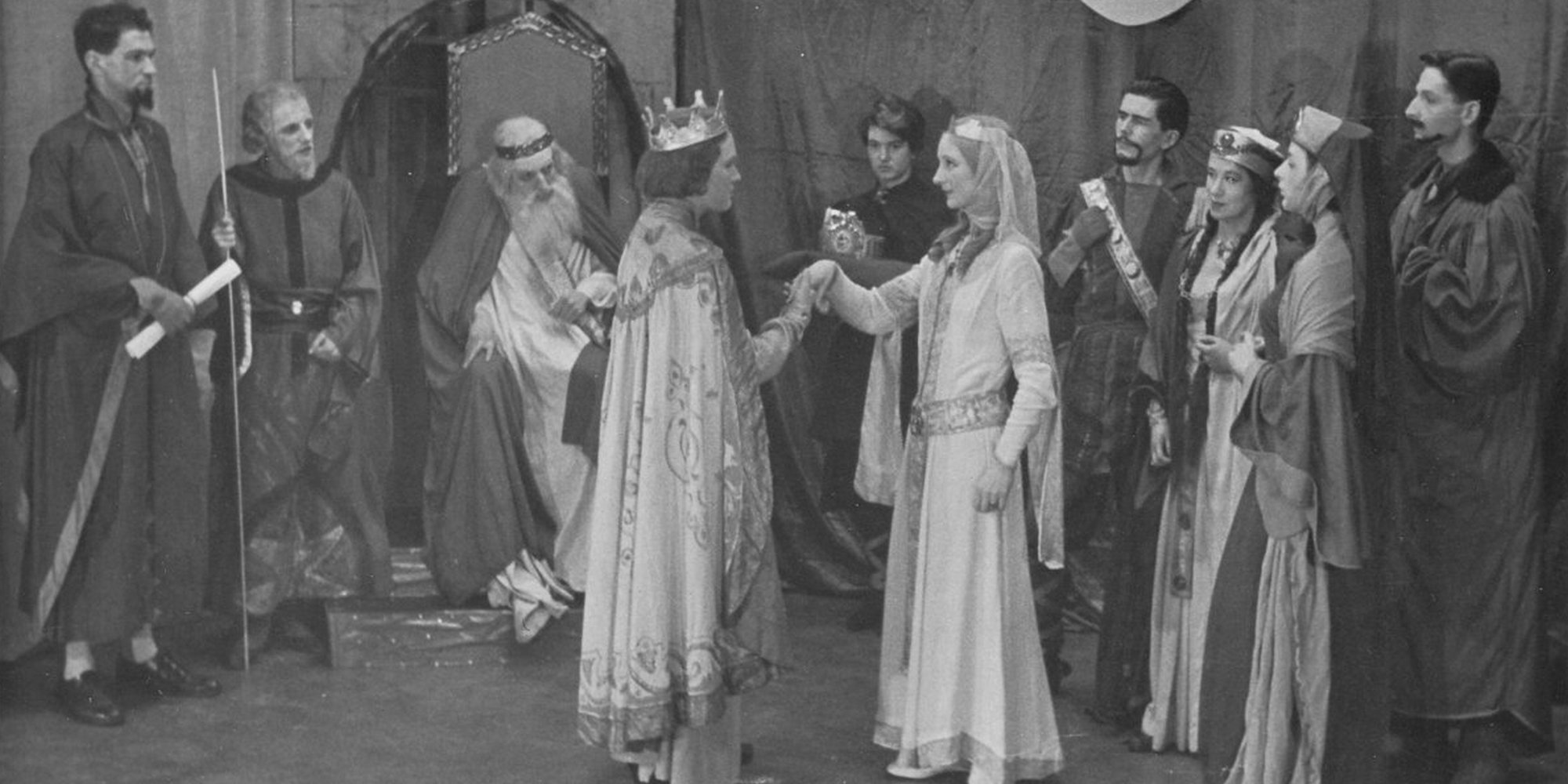
Cedric Watts writes about Sceptical Shakespeare
Cedric Watts examines Shakespeare’s religious beliefs.
When writing the introduction to the Wordsworth edition of Shakespeare’s King Lear, I pointed out that Shakespeare had departed from his sources in order to give the play’s finale an exceptionally sceptical, anti-providential quality. ‘The gods defend her!’, cries Albany; but, half a line later, Lear enters bearing Cordelia dead in his arms. Has Shakespeare thus revealed his own scepticism?
Assessing Shakespeare’s religious outlook is notoriously difficult. Sometimes he seems traditionally pious, even credulous; sometimes, instead, he seems sceptical, even atheistic. Broadly, the earlier Shakespeare is more orthodox, the later Shakespeare more heterodox, but the pattern is not straightforward; it is wavering and uneven. Indeed, in the last of his history plays, Henry VIII (also known, ironically, as All Is True), the combination of sycophantic politics and conventional piety is blatant: God, we are assured by Archbishop Cranmer in prophetic mode, will pour blessings upon Elizabeth, destined to be Queen, and her successor, King James.
In the Sonnets, notably sonnets 141, 142 and particularly 152, the poet confesses his sinfulness in pursuing the dark-haired lady and thus betraying his wife. Sonnet 146 (‘Poor soul, the centre of my sinful earth’) expresses traditional Christian doctrine: the poet rebukes himself for sinfulness, and says that he should curb the senses and nourish his soul in order to attain heavenly immortality. The sonnets are certainly personal and autobiographical: some of them, for example, a pun on the name of ‘Will’: 57, 80, 134, 135, 136 and 143. Generally, the sequence of sonnets is certainly heterodox (though not unique) in celebrating intense love for a beautiful and effeminate young man: a love condemned not only by the Bible but also – hypocritically – by the bisexual James I. (The Earl of Southampton, the most likely identification of the beautiful loved one, was so effeminate in appearance that for centuries the Cobbe portrait of him was thought to be a portrait of a woman, Lady Norton.) The sequence is also heterodox in describing the poet’s infatuation with a courtesan who is not beautiful and who is certainly promiscuous: ‘the bay where all men ride’. In sonnet 129 (‘Th’expense of spirit in a waste of shame’), he denounces lust – but concedes that ‘none knows well / To shun the heaven that leads men to this hell’; and in 141 he ruefully concludes that he has this gain: ‘That she that makes me sin awards me pain’. Repeatedly the sonnets voice the paradox that sin is recognised yet indulged.
The history plays often align God with the cause which (to Elizabethan eyes) was rightly victorious. Thus, in Richard III, ghosts of Richard’s victims denounce Richard and encourage Richmond. In the second tetralogy (the sequence combining Richard II, Henry IV Parts 1 and 2, and Henry V), the biblical story of the Fortunate Fall is re-enacted politically on a vast scale. After the Fall occasioned by the killing of Richard II, and after the wasteful civil wars during the reign of Henry IV, the fortunate culmination arrives with the successes of Henry V; and the astonishing victory at Agincourt is repeatedly ascribed by Henry to the will of God. Here, however, we may notice that the last speech of Henry V is a choric epilogue which says that all Henry’s French conquests were annulled in the ensuing reign of Henry VI. This epilogue completely subverts the sense of providential triumph. In addition, Shakespeare’s first tetralogy of history plays (Henry VI, Parts 1, 2 and 3, and Richard III) had already shown that though Henry VI was an exceptionally pious, God-fearing king, he was politically disastrous.
Of course, the histories often suggest, patriotically, that England is especially favoured by God. This point is most resonantly made by John of Gaunt in Richard II, Act 2, scene 1, the ‘sceptred isle’ speech. (The real John of Gaunt, far from being a patriotic seer condemning corruption, was a highly unpopular, corrupt magnate.) In King John, the king defies Cardinal Pandulph, the Pope’s legate, terming Roman Catholicism ‘juggling witchcraft’; and Pandulph says that the Pope will bless anyone who assassinates King John. This would have resonated in Elizabethan England, for Elizabeth had similarly been threatened with assassination by a Pope. John eventually dies in agony, ‘poisoned by a monk’. Certainly, King John indicates no Roman Catholic sympathies in Shakespeare.
The first and particularly the second tetralogy of history plays are enriched by their Christian dimension, which gives them a moral and thematic depth and complexity lacking in the Roman plays Titus Andronicus, Julius Cæsar and Coriolanus. (In Antony and Cleopatra, Roman austerity is offset by Egyptian luxury, so there is a compensatory richness.) The English histories repeatedly dramatise the difficulty of being a monarch who is both Christian and martial, both ‘the Lord’s anointed’ and an erring mortal.
Among the comedies, we may note that The Merchant of Venice predictably supports the Christians and opposes the Jew, Shylock (so that the play was popular in Nazi Germany); but the Jew is at least permitted some shrewd thrusts at the Christians, and the Christians’ eventual treatment of the Jew appears vindictive rather than merciful. Or so such treatment appears today; in Shakespeare’s day, it might not have done. (In 1594 the Queen’s physician, Dr Rodrigo Lopez, a Jew, was publicly hanged, drawn and quartered for supposedly plotting to poison her, after confessions had been elicited by torture. In Marlowe’s Jew of Malta, the Jew is a disciple of Machiavelli, who says: ‘I count religion but a childish toy.’)
Representatives of the church are sometimes depicted by Shakespeare in a critical light. In Romeo and Juliet, Friar Lawrence seems well-meaning, but he eventually flees from the burial-ground, leaving Juliet unaided. In Measure for Measure, the Duke disguises himself as a Friar to learn more about his subjects, but he meets his match when the convict Barnardine refuses to cooperate in his scheme (which would entail the hanging of Barnardine). Furthermore, the Duke, speaking as the Friar, envisages the after-life merely as a long sleep – an Epicurean or stoical rather than a Christian concept. He says:
Thy best of rest is sleep,
And that thou oft provok’st; yet grossly fear’st
Thy death, which is no more.
In Hamlet, the priest complains that since Ophelia committed suicide, she should not be buried in consecrated ground, and this provokes a splendid outburst from Laertes:
I tell thee, churlish priest,
A minist’ring angel shall my sister be,
When thou liest howling.
This evidently means that Laertes envisages her among the angels serving in Heaven while the priest’s soul howls in Hell. (We are surely meant to sympathise with Ophelia and to share Laertes’ hostility to the pharisaical priest.)
This is a reminder that Shakespeare sometimes looks with remarkable lenience upon people who commit suicide. In both the Roman Catholic and the Protestant faiths, suicide was then a sin guaranteeing damnation in Hell. In England until 1961, attempted suicide was a crime. But in Romeo and Juliet, after both Romeo and Juliet have committed suicide, their deed, far from being condemned, is regarded as a reproach to the survivors. Cleopatra’s death is a regal act, confirming her loyalty to Antony and defiance of Octavius. Othello’s suicide seems poignant and inevitable. When Horatio, appalled to see the dying Hamlet, is about to commit suicide by drinking the poison, Hamlet stops him, saying:
Absent thee from felicity awhile,
And in this harsh world draw they breath in pain
To tell my story.
‘Absent thee from felicity awhile’ appears to mean ‘Postpone for a while the happiness that suicide would bring’ – a highly unorthodox notion. (It is to Hamlet, incidentally, that we owe what is possibly Shakespeare’s most sceptical utterance: ‘There is nothing either good or bad, but thinking makes it so.’)
Of course, the Roman plays remind us that, traditionally, heroic Romans responded to calamity by suicide – ‘the high Roman fashion’, as Cleopatra calls it. Brutus, Cassius and Antony achieved such deaths. But suicide is also the course taken by failed ruthless schemers – Lady Macbeth (‘as ’tis thought’) and Goneril. Incidentally, a characterisation does not necessarily end with that character’s death. Julius Caesar lives on after his assassination – his ghost addresses Brutus ominously, and, as Brutus and Cassius die, they acknowledge that Caesar has prevailed. When Richard III prepares for his final battle, his defeat seems inevitable, since ranged against him are not only the forces of Richmond but also the ghosts of his victims, who appear nocturnally to curse him and encourage his foes.
The Ghost in Hamlet is a perplexing special case. Roman Catholics believed that ghosts were spirits from Purgatory. Protestants, however, had abolished Purgatory; so, for them, ghosts were devils in disguise, on the loose from Hell. Hamlet is uncertain about the Ghost’s provenance. The play of ‘The Mouse-Trap’ is used by Hamlet to test the Ghost as well as Claudius; for, if Claudius evinces guilt, this will show, Hamlet thinks, that the Ghost is a good ghost – truthful. But, of course, as Banquo in Macbeth reminds us, the Devil or his agents can utter truths when to do so serves wicked purposes: ‘oftentimes, to win us to our harm, / The instruments of darkness tell us truths’. So the ambiguity about the Ghost remains. (In one production that I saw, the 2000 National Theatre version, in the closing moments of the tragedy, the Ghost entered, looked with evident satisfaction on all the corpses lying about the stage, and withdrew.) In Henry VI, Parts 1 and 2, and in Macbeth, witchcraft is (alas) demonstrated to be real and hellish, the work of Satan, as King James argued in Dæmonologie. Richard III, however, shows that Richard falsely blames witchcraft for his withered arm.
In Measure for Measure, Act 3, sc.1, Claudio has a fine, impassioned speech beginning ‘Ay, but to die, and go we know not where’, in which he speculates on the torments which might await one in death. There you may even, he speculates,
be worse than worst
Of those that lawless and incertain thoughts
Imagine howling.
In other words, you might be in a worse plight than the worst of those victims who, according to the now-forbidden and unsound doctrine, can be imagined howling in Purgatory; for you would actually be suffering the torments of Hell. By abolishing Purgatory, Protestants had deprived believers of a posthumous ‘second chance’ of reaching Heaven.
Of course, Shakespeare was often dramatising the situations he found in his sources. Nevertheless, in Promos and Cassandra, the source of Measure for Measure, Andrugio, the counterpart to Shakespeare’s Claudio, has no speech equivalent to Claudio’s ‘Ay, but to die’ speech. One way of establishing Shakespeare’s own dramatic intentions, and possibly his beliefs, is to see what happens when he departs from the sources. Here, in a strongly dialectical drama, Shakespeare has chosen to dramatise contrasting views of death, as well as contrasting views of sexual morality. As George Bernard Shaw recognised, Shakespeare has constructed Measure for Measure as a paradoxical problem-play. In Troilus and Cressida, although Ulysses claims that we are all part of a divinely-ordained hierarchy, he says that this hierarchy can be smashed irrevocably by human egotism, and the play accordingly depicts a breakdown in order which is reflected in the very disorderly structure of the play’s own fifth act. As in King Lear, we encounter the extremely heterodox idea that human actions may destroy a supernaturally-ordained moral order. Eventually, in Troilus and Cressida, chivalry is outmoded, love proves false, and divinity is conspicuous by its absence.
I mentioned at the outset of this essay that Shakespeare departed from all the known sources of King Lear in order to give the play its peculiarly bleak, anti-providential ending. Only in Shakespeare’s version does Cordelia’s death precede Lear’s. And Shakespeare has so arranged events that God, or the gods, seem absent from the finale of the action. The play may even, like Troilus and Cressida, suggest that a God whom we deny is a God who then may die. Whether Shakespeare is expressing his own scepticism, or is simply choosing (as if in a literary experiment) to dramatise a sceptical mood, is almost impossible to establish. If it was personal, it may have been temporary or intermittent rather than durable.
We are given a clue in The Tempest. As is well known, this play has distinct autobiographical resonance. It is the last play solely by Shakespeare. The playwright was then contemplating retirement, as Prospero is; and Prospero repeatedly refers to his magic as his ‘art’, thus helping us to relate the career of the magician to the career of the dramatist. In what is probably the finest speech of the play, Prospero (having dismissed the performers of the masque) says to Ferdinand:
Our revels now are ended. These our actors
(As I foretold you) were all spirits, and
Are melted into air, into thin air;
And, like the baseless fabric of this vision,
The cloud-capped towers, the gorgeous palaces,
The solemn temples, the great globe itself,
Yea, all which it inherit, shall dissolve,
And, like this insubstantial pageant faded,
Leave not a rack behind. We are such stuff
As dreams are made on; and our little life
Is rounded with a sleep. Sir, I am vexed.
It’s a moving, poignant, and persuasive speech. It says that if the masque vanishes, that is not surprising, because the whole world, and all of us who inhabit it, are part of one great cosmic vanishing trick. Everything will dissolve away, and we with it. We are as insubstantial as dream stuff, and, at the end of our lives, there is merely sleep. Perhaps, finally, Prospero is ‘vexed’ because he has remembered the conspiracy of Caliban, Stephano and Trinculo; or perhaps he is vexed because his reflections have led him to envisage such total dissolution. No talk here of an afterlife, of a Heaven to be attained by the virtuous; no, after the dream of life comes the sleep of death, from which no wakening is envisaged. Here Shakespeare expresses a memorably lyrical and thorough scepticism. There was no source text for this speech; we are listening to Shakespeare’s original creativity.
The question looms: Is Shakespeare here creating a speech which is appropriate to the character and the themes of this play, but which does not express Shakespeare’s own viewpoint; or is he creating a speech which is not only appropriate to the character and the themes of the play but which also expresses his own viewpoint? And, if the latter, is it a viewpoint which he entertained briefly or held more enduringly? In Shakespeare’s day, heretics (who could in theory include atheists) were burnt at the stake, and in any case, there would be immense pressure upon dramatists to express a conventionally pious view. This means that expressions of scepticism, particularly when delivered by a good character (such as Prospero) and not by a villain (such as Macbeth, in the speech beginning ‘Tomorrow, and tomorrow, and tomorrow’), deserve special attention. Such utterances required courage from the author. Christopher Marlowe, more heterodox than Shakespeare, was silenced by assassination in 1593.
At the end of The Tempest is a strange epilogue in which the voice of Prospero becomes the voice of the actor playing Prospero, and finally the voice, it seems, of Shakespeare himself. That Epilogue, introduced as ‘spoken by Prospero’ is as follows:
Now my charms are all o’erthrown,
And what strength I have’s mine own,
Which is most faint. Now,’tis true,
I must be here confined by you,
Or sent to Naples. Let me not,
Since I have my dukedom got,
And pardoned the deceiver, dwell
In this bare island, by your spell;
But release me from my bands,
With the help of your good hands. 10
Gentle breath of your my sails
Must fill, or else my project fails,
Which was to please. Now I want
Spirits to enforce, art to enchant;
And my ending is despair,
Unless I be relieved by prayer
Which pierces so, that it assaults
Mercy itself, and frees all faults.
As you from crimes would pardoned be,
Let your indulgence set me free. 20
This Epilogue combines three layers of meaning. In the first, Prospero incorporates the audience into the fictional action, saying that their cooperation is needed if his return to the mainland and the successful completion of his project are to be achieved. In the second layer (which emerges strongly in lines 9-13), the actor of the rôle solicits the applause and goodwill of the audience. In the third layer (which emerges strongly at lines 13-20), it seems not only that Prospero begs for prayers for divine help and that the actor seeks the spectators’ indulgence, but also that the playwright, contemplating retirement, asks the hearers for their intercessional prayers on his behalf: for these acts of prayer (he says) have the capacity to be so effectively penetrating that they forcefully solicit God, source of all mercy, and thus obtain the playwright’s liberation from sin and error.
Given the repeated attacks on the theatre, players and playwrights by Puritans and by influentially pious figures in his lifetime, it would not be surprising for Shakespeare to feel some religious guilt about his profession: indeed, some guilt had already been expressed in sonnets 110 and 111:
Alas, ’tis true, I have gone here and there
And made myself a motley to the view…
And almost thence my nature is subdued
To what it works in, like the dyer’s hand.
Shakespeare, however, loved paradox. He didn’t delete from The Tempest the heretical ‘Our revels now are ended’ speech: he let it stand, splendidly. It is the combination of such an utterance with the concluding epilogue which displays the richness of his questing imagination. The late romances (Pericles, Cymbeline, The Winter’s Tale and The Tempest) offer a complex fusion of Christian and classical theology, but Christianity has the last word.
Shakespeare’s will, completed in the year of his death, 1616, contains a conventional but nevertheless notable religious affirmation, Protestant in spirit:
I Comend my Soule into the handes of god my Creator hoping & assuredlie beleeving through thonelie merittes of Iesus Christe my Saviour to be made partaker of lyfe everlastinge And my bodye to the Earth whereof yt ys made[.]
To conclude. In the great diversity of his works, Shakespeare gave expression to a diversity of religious and anti-religious ideas. Some of the sceptical ideas may have been his, for a while, and not merely those of literary characters in the plays. Certainly, in King Lear and Troilus and Cressida, the sceptical imagination seems strongly and extensively at work. In The Tempest, the relationship between Prospero’s ‘Our revels now is ended’ speech and the contrastingly pious Epilogue indicates that Shakespeare, late in life, relished sceptical imaginings but yet experienced guilt for them and sought religious forgiveness. Finally, I see no reason to doubt the sincerity of the expression of faith in his will. That it was conventional does not render it insincere.
Books associated with this article
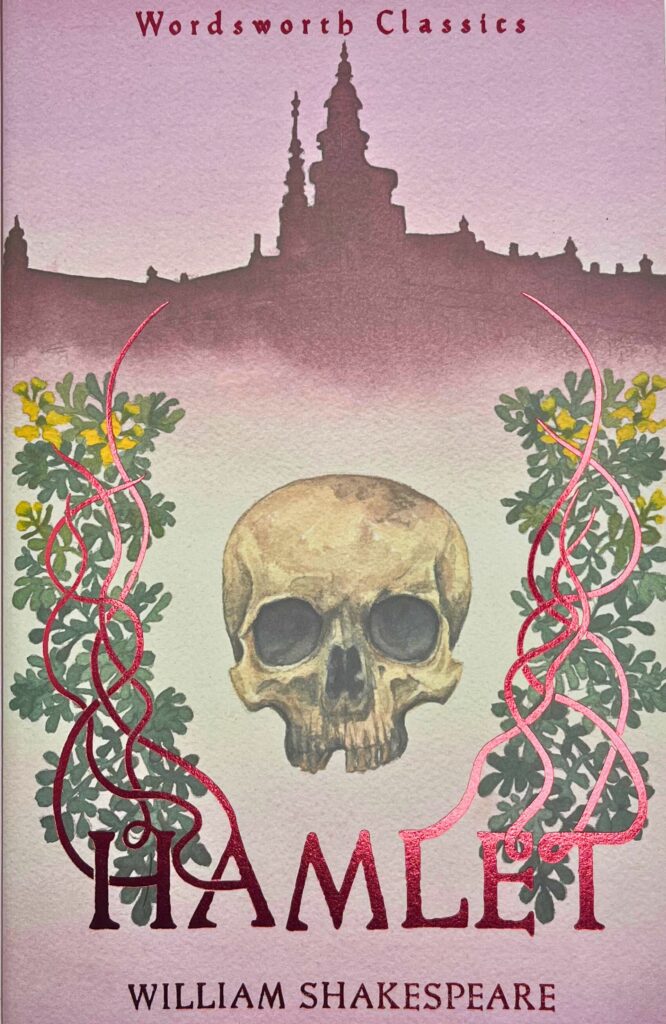
Hamlet
William Shakespeare
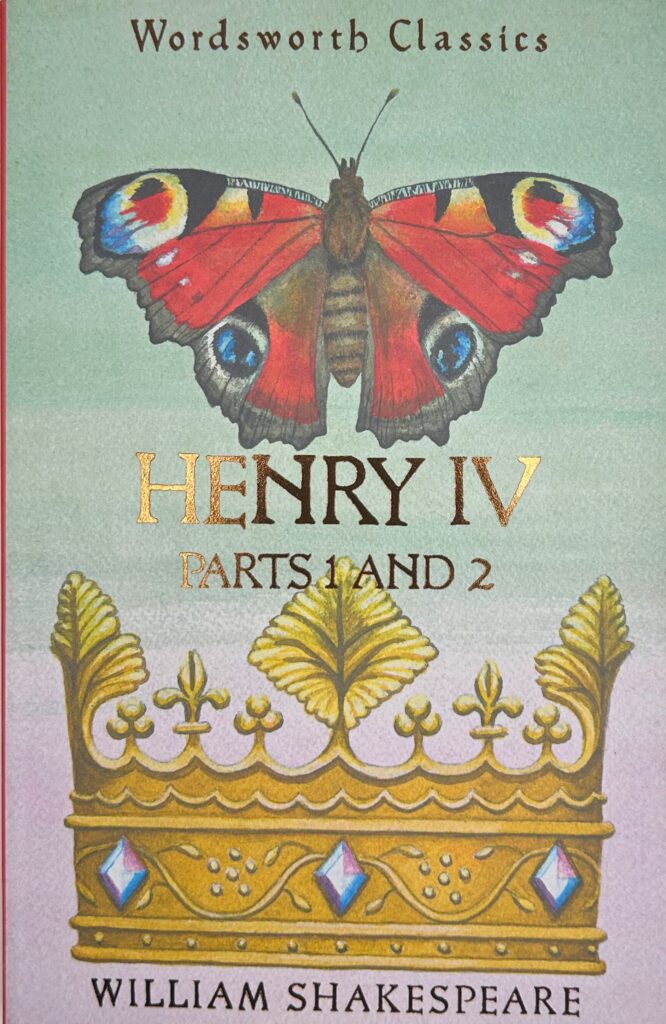
Henry IV Parts 1 & 2
William Shakespeare

Henry V
William Shakespeare
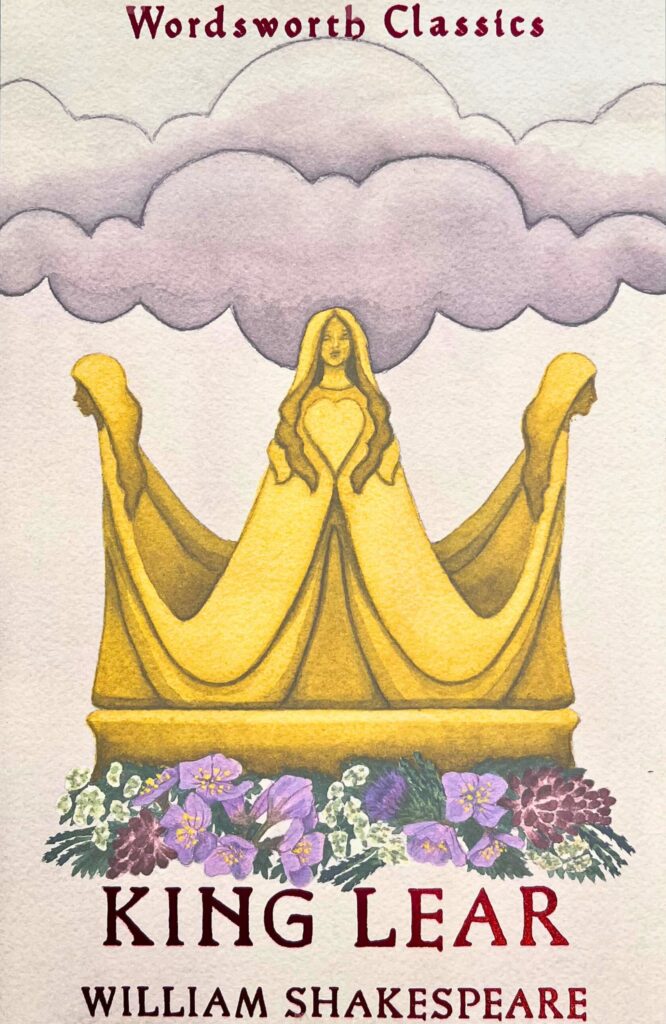
King Lear
William Shakespeare
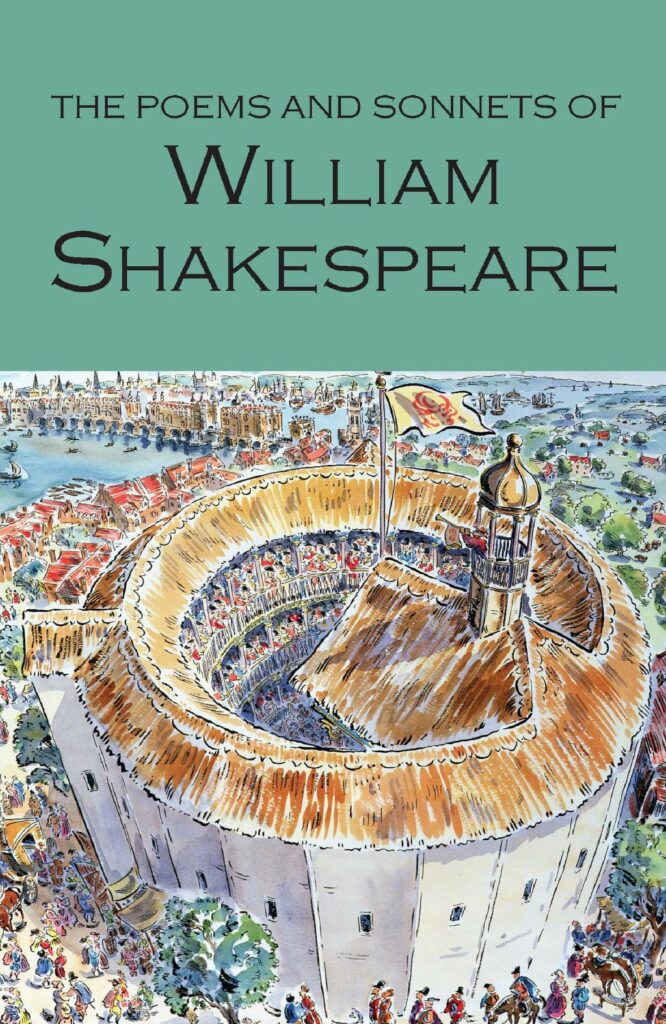
The Poems and Sonnets of William Shakespeare
William Shakespeare
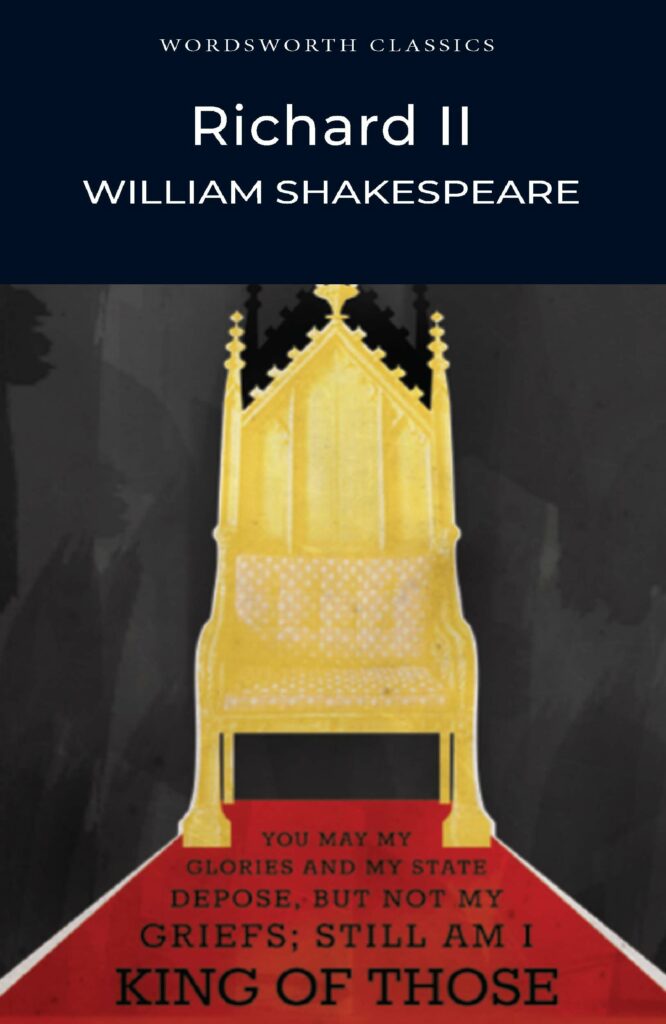
Richard II
William Shakespeare
